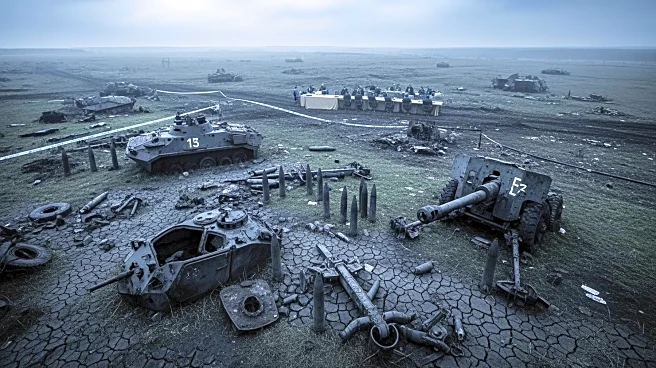What is the story about?
What's Happening?
The federal government has entered a shutdown following a failure by Congress to pass necessary funding measures. The Congressional Budget Office (CBO) estimates that approximately 750,000 federal employees will be furloughed each day, resulting in a daily cost of $400 million for their compensation. The shutdown stems from a political standoff between Republicans and Democrats over health insurance subsidies related to the Affordable Care Act. Essential services such as air traffic control and law enforcement will continue, but many federal operations will be halted, affecting workers and potentially the broader economy.
Why It's Important?
The shutdown has significant implications for the U.S. economy and federal workforce. Historically, shutdowns have led to temporary job losses in the private sector and economic disruptions, as seen in the 2014 shutdown which resulted in a $2 billion deadweight loss. The current shutdown could exacerbate economic fragility, with furloughed workers spending less and reduced tourism due to closed National Parks. The political impasse over health insurance subsidies highlights ongoing tensions in U.S. healthcare policy, with potential consequences for millions of Americans facing increased insurance premiums.
What's Next?
The duration of the shutdown remains uncertain, with Democrats and Republicans entrenched in their positions. Democrats aim to leverage public pressure over rising insurance premiums to force Republicans back to negotiations. Meanwhile, Republicans hope to gain support from Democrats to reopen the government without extending ACA subsidies. The political battle may continue as both sides seek to maintain their stance, with potential implications for future legislative negotiations and public sentiment.
Beyond the Headlines
The shutdown raises ethical and legal questions regarding the Trump administration's approach to federal workforce management, including potential permanent layoffs. This unprecedented move could face legal challenges and reflects broader efforts to reshape federal priorities. The situation underscores the complex interplay between political strategy and governance, with long-term implications for federal employment practices and public trust in government operations.














